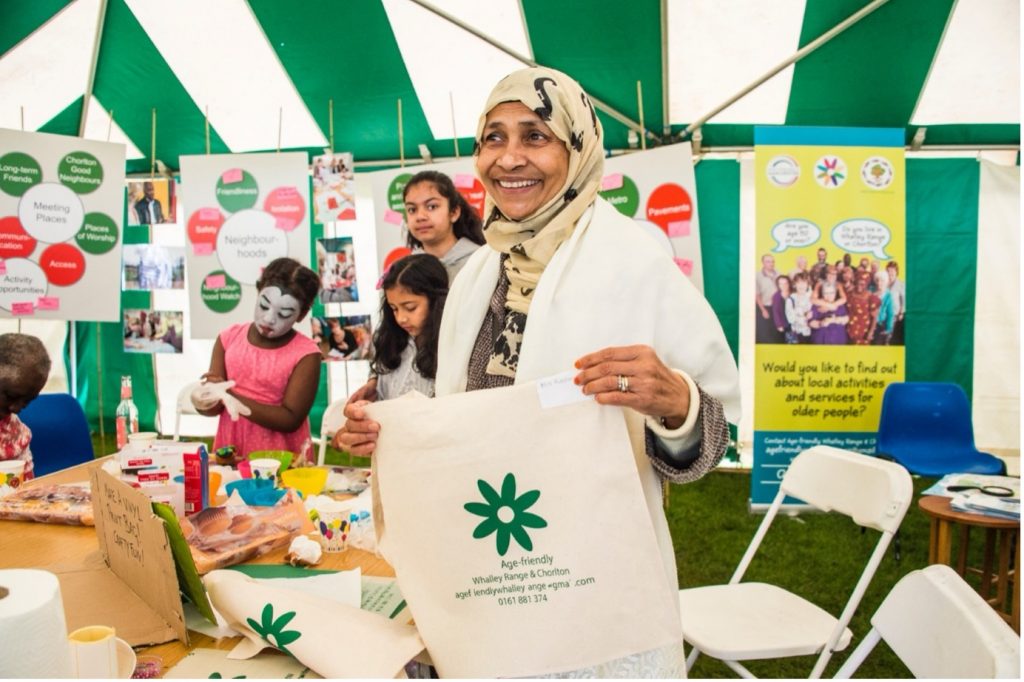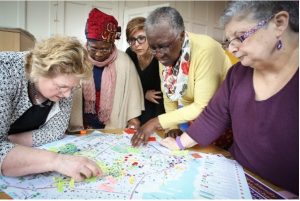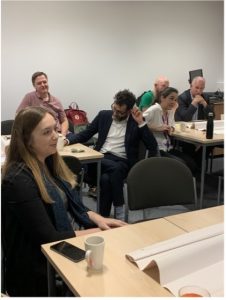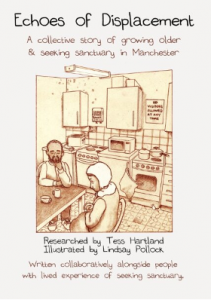
Co-producing research: 6 key considerations | Joanna Barrow
This blog presents MUI recommendations for best practice in the co-production of research.
What is co-production?
 Co-production of research in the urban context is broadly understood to be a collaborative venture, bringing together all stakeholders around a key issue of common relevance. This could include members of a local community, policy makers, service providers, and businesses as well as academics. The urban environment is a fruitful context for co-production due to population density and the close proximity of stakeholders with a shared interest in local matters.
Co-production of research in the urban context is broadly understood to be a collaborative venture, bringing together all stakeholders around a key issue of common relevance. This could include members of a local community, policy makers, service providers, and businesses as well as academics. The urban environment is a fruitful context for co-production due to population density and the close proximity of stakeholders with a shared interest in local matters.
The co-production approach should ideally be employed throughout all stages of the research process, including consultation, development of funding proposals and research methods, evaluation and outputs. Involvement can include meetings, workshops, discussion groups and participatory engagement activities.
Why does co-production matter?
In simple terms, when undertaken thoughtfully and with care, co-production is the most ethical way to conduct research that will impact on people and places. It directly involves them in the decision process around the research. The approach is endorsed by the UKRI which has a focus on co-producing research across disciplines.
What do the experts say?
 A panel of experts, convened by Manchester Urban Institute and Manchester Global Development Institute in collaboration with Methods@Manchester recommended the following key considerations to help facilitate successful co-production of research:
A panel of experts, convened by Manchester Urban Institute and Manchester Global Development Institute in collaboration with Methods@Manchester recommended the following key considerations to help facilitate successful co-production of research:
Relationships
It is important to develop strong trusted relationships with all parties involved. This might involve taking the time to find out about the local context for the research and discovering what matters most to the people who live and work in that location. It will also help identify a range of representatives to invite to participate in the co-production exercise.
Trust
Relationships need to be built on trust, established through clear, transparent communication. This includes managing the expectations of those involved, for instance, clearly defining how long the relationship might last, what people’s involvement will be and what can realistically be achieved within the timescale. It is also important to be clear about who has ownership of any outputs, such as data and published materials.
Equality
 As well as ensuring that all relevant groups are represented in the co-production process, consideration should be given to power relationships, for example, the role of the university (employer, educator, neighbour) and how it is perceived by the local community, to ensure that there is equality for all involved. Reflexivity, the position and influence of the researcher in the co-production relationship, should also be considered.
As well as ensuring that all relevant groups are represented in the co-production process, consideration should be given to power relationships, for example, the role of the university (employer, educator, neighbour) and how it is perceived by the local community, to ensure that there is equality for all involved. Reflexivity, the position and influence of the researcher in the co-production relationship, should also be considered.
Sustainability
Often it is desirable for the duration of a project to last for months or even years; however, this is dependent on securing adequate resources, primarily time, funding and personnel. Securing longer-term contracts for researchers, who are often employed on a short term basis, is beneficial.
Social responsibility
It is advised that co-produced urban research should be conducted with a sense of solidarity, and support for and awareness of local sensibilities. The focus of the collaboration should align with the concerns of those involved and needs to be meaningful for all parties, i.e., local community residents, as well as useful to academics and policy makers, to justify people’s time commitment.
Process
 It is important to note that there is no single set approach to co-production of research and it can be a ‘messy’ process. Therefore, it is necessary to be adaptable and work in a flexible way. This might involve allowing people to join in with the work or to drop out along the way; it might involve using different methods to facilitate different voices in different ways (for example, alternative or creative means of engagement).
It is important to note that there is no single set approach to co-production of research and it can be a ‘messy’ process. Therefore, it is necessary to be adaptable and work in a flexible way. This might involve allowing people to join in with the work or to drop out along the way; it might involve using different methods to facilitate different voices in different ways (for example, alternative or creative means of engagement).
What are we doing?
Manchester Urban Institute recognises the importance of co-producing urban research as a major multidisciplinary cross-cutting theme. Successful co-produced research is facilitated by good trusting relationships and honest communication; by the alignment of interests; and through securing adequate funding and time to ensure sustainability. It seems clear that despite the fantastic work carried out by academics to date, this area remains under-recognised and lacks the systemic support necessary to facilitate successful collaborations.
In order to raise the profile of co-production of urban research and to share expertise and knowledge, Manchester Urban Institute convened the panel discussion that informed this blog and are scheduling events to further promote and share good practice in this area. Through these types of activities, Manchester Urban Institute hopes to connect communities of researchers and students to learn from and support one another.
Useful links
Co-production (Office for Open Research)
Acknowledgements
Thank you to the experts from the panel discussion.
Chair: Diana Mitlin, Manchester Global Development Institute.
Panellists: Victoria Beard, Cornell Mui Ho Center for Cities; Tine Buffel, Manchester Urban Ageing Research Group; James Evans, Manchester Urban Institute; and Shuaib Lwasa, International Institute for Social Studies, Erasmus University Rotterdam.
The images in this blog post were kindly supplied by Tine Buffel and colleagues at the Manchester Urban Ageing Research Group (MUARG).
Call to action
Do you have a viewpoint, some news, research or other activity you would like to share? If so, and you would like to write a post for the MUI blog, please get in touch.

0 Comments